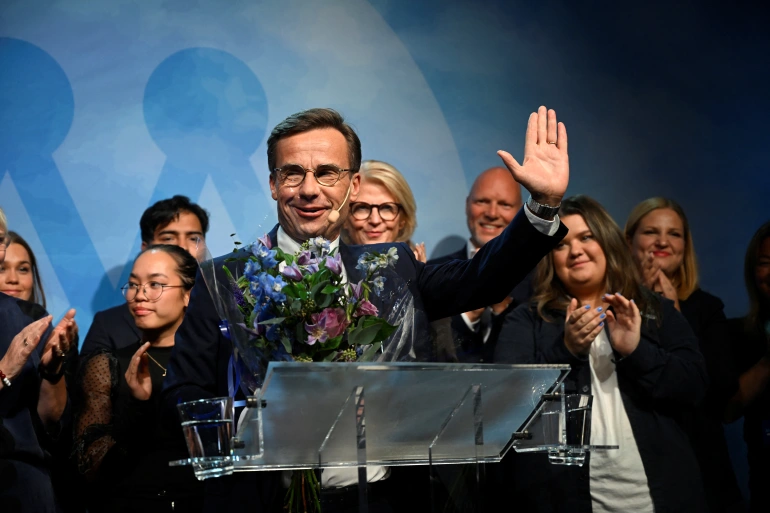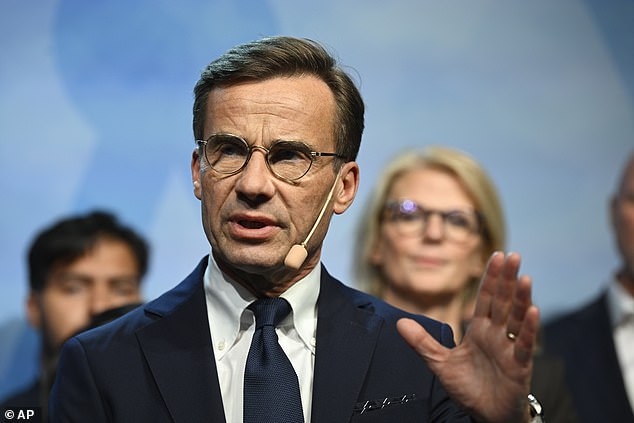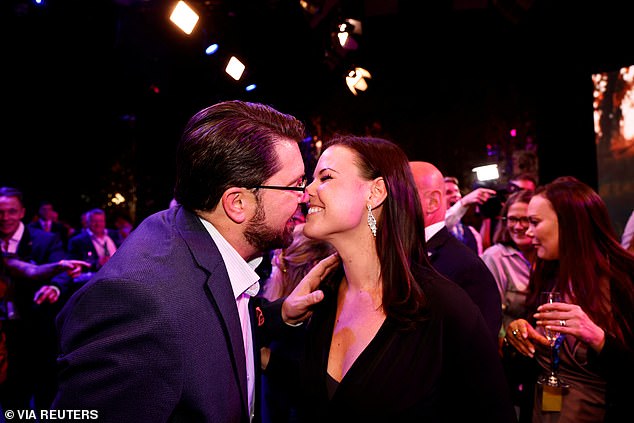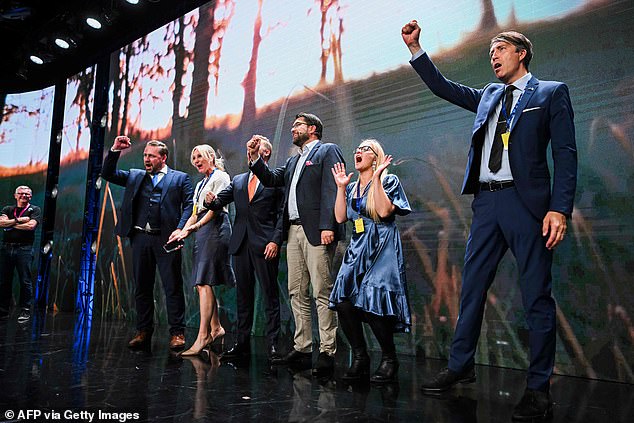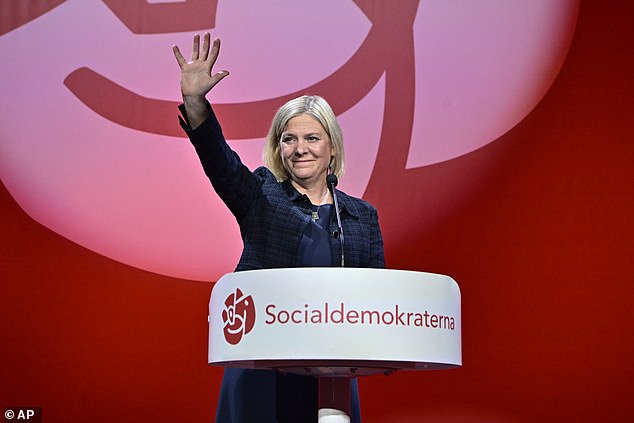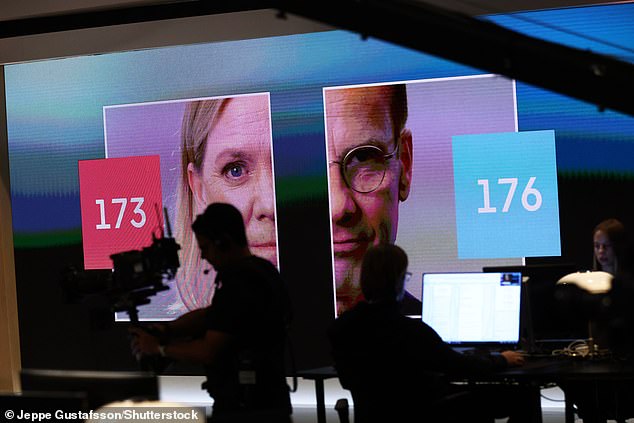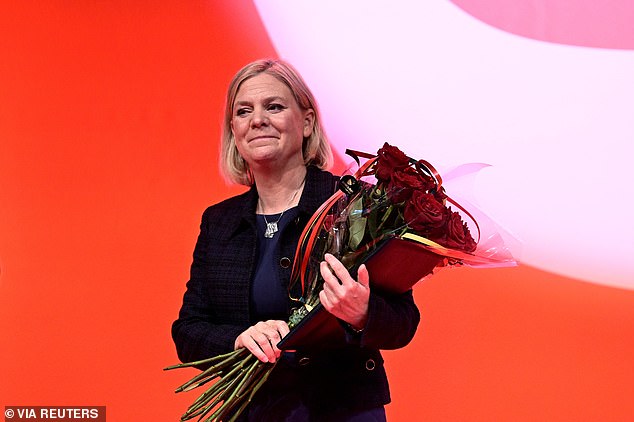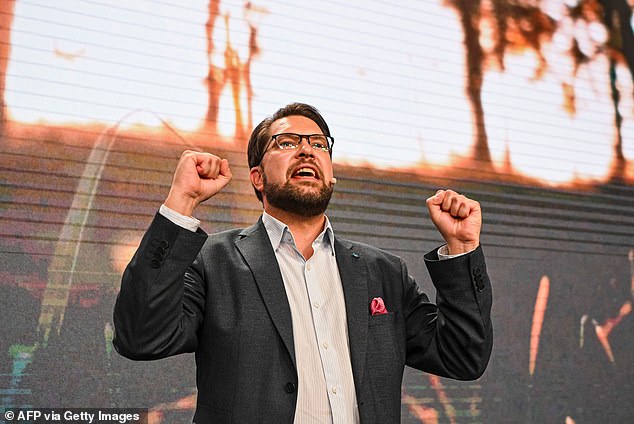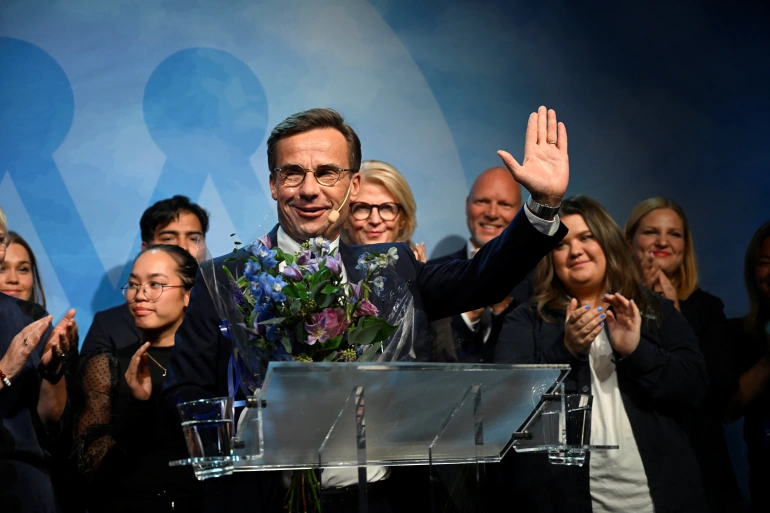
Sweden’s conservative parties look set to win power in Sunday’s general election, taking a razor-thin lead amid a surge in support for the far-right.
With 93 percent of electoral districts counted, figures showed the Moderates, Sweden Democrats, Christian Democrats and Liberals winning 176 of 349 seats in parliament, with the centre-left of incumbent Prime Minister Magdalena Andersson trailing behind with 173.
The leader of the conservative bloc, Moderates leader Ulf Kristersson, noted that while the election results could still change, he was “ready to build a new and strong government”.
Andersson, whose Social Democrats have been in government for eight years, said results were too close to call and did not concede defeat on election night. Her party looked set to emerge as the country’s biggest party with 30.5 percent.
Election authorities said they did not expect a final result until Wednesday at the earliest, when votes from abroad and the last ballots from advance voting had been counted.
The election campaign has been dominated by traditionally right-wing issues, such as concerns about immigration, crime and an increase in gang shootings.
But a cost of living crisis as households and companies face surging power prices had been seen to boost Andersson, who is viewed as a safe pair of hands and is more popular than her party.
Andersson was finance minister for seven years before becoming Sweden’s first female prime minister a year ago.
Kristersson had cast himself as the only candidate who could unite the right and unseat her.
The anti-immigration Sweden Democrats look set to overtake the Moderates as Sweden’s second-biggest party – a historic shift in a country that has long prided itself on tolerance and openness.
That may make it hard for Kristersson to keep the far-right party at arm’s length. The Moderates were at 19 percent with the Sweden Democrats at 20.5 percent.
“Right now it looks like there will be a change of power. Our ambition is to sit in the government,” Sweden Democrat leader Jimmie Akesson told jubilant supporters at a post-election party.
Difficult negotiations
When Kristersson became leader of the Moderates in 2017, the Sweden Democrats, which has white supremacists among its founders, was shunned by the right and left.
But Kristersson has gradually deepened cross-party ties since a 2018 election loss and the Sweden Democrats are increasingly seen as part of the mainstream right.
The prospect of the party having a say in government policy or joining the cabinet worries some voters.
“I’m fearing very much a repressive, very right-wing government coming,” 53-year-old Malin Ericsson, a travel consultant, said earlier on Sunday at a voting station in central Stockholm.
The strong showing for the Sweden Democrats follows gains for the anti-immigration right elsewhere in Europe where Italy looks poised to elect a conservative grouping including Giorgia Meloni’s Brothers of Italy (FdI) and Matteo Salvini’s League later this month.
“I have voted for a change in power,” said Jorgen Hellstrom 47, a small business owner, as he voted near parliament. “Taxes need to come down by quite a bit and we need to sort out crime. The last eight years have gone in the wrong direction.”
Whichever side wins, negotiations to form a government in a polarised and emotionally-charged political landscape are likely to be long and difficult.
Andersson will need to get support from the Centre Party and the Left, who are ideological opposites, and the Green Party as well, if the 55-year-old wants a second term as prime minister.
The Social Democrats have governed Sweden since 2014 and dominated the political landscape since the 1930s.
“We Social Democrats have had a good election,” she told party members late Sunday, adding: “Swedish Social Democracy stands strong”.

